
Fate is coming. The only question is: Will you meet it like a coward… or like a hero?
Today we’re diving into one of the most enduring, powerful, and surprisingly practical ideas to come down to us from the ancient world — the Heroic Life.
Now when you hear “heroic,” you might think of comic book characters, action movie stars, or tales of long-forgotten warriors. But I want to suggest something deeper. The Heroic Life isn’t just about slaying dragons or storming beaches. It’s about a way of being — a code, a mindset, a worldview rooted in courage, honor, action, and sacrifice.
And though the modern world tries its hardest to drown these values out in a flood of comfort, distraction, and convenience… they’re still here, waiting for those bold enough to claim them. In fact, the future of our civilization depends upon it.
So pour yourself a drink, settle in — and let’s begin.
I. What is the Heroic Life?
The Heroic Life is a code of living rooted in courage, fate, honor, action, and sacrifice. In the ancient world — from the icy fjords of the North to the dusty plains of Greece — life was short, brutal, and often violent. Death could come at any time. The question wasn’t whether you would die, but how you would meet it.
The Heroic Life asks one thing of you:
Face your fate boldly.
That meant standing firm in the face of impossible odds, keeping your word even when it hurt, and leaving a name behind that would echo after your bones had turned to dust.
II. Core Concepts of the Heroic Life
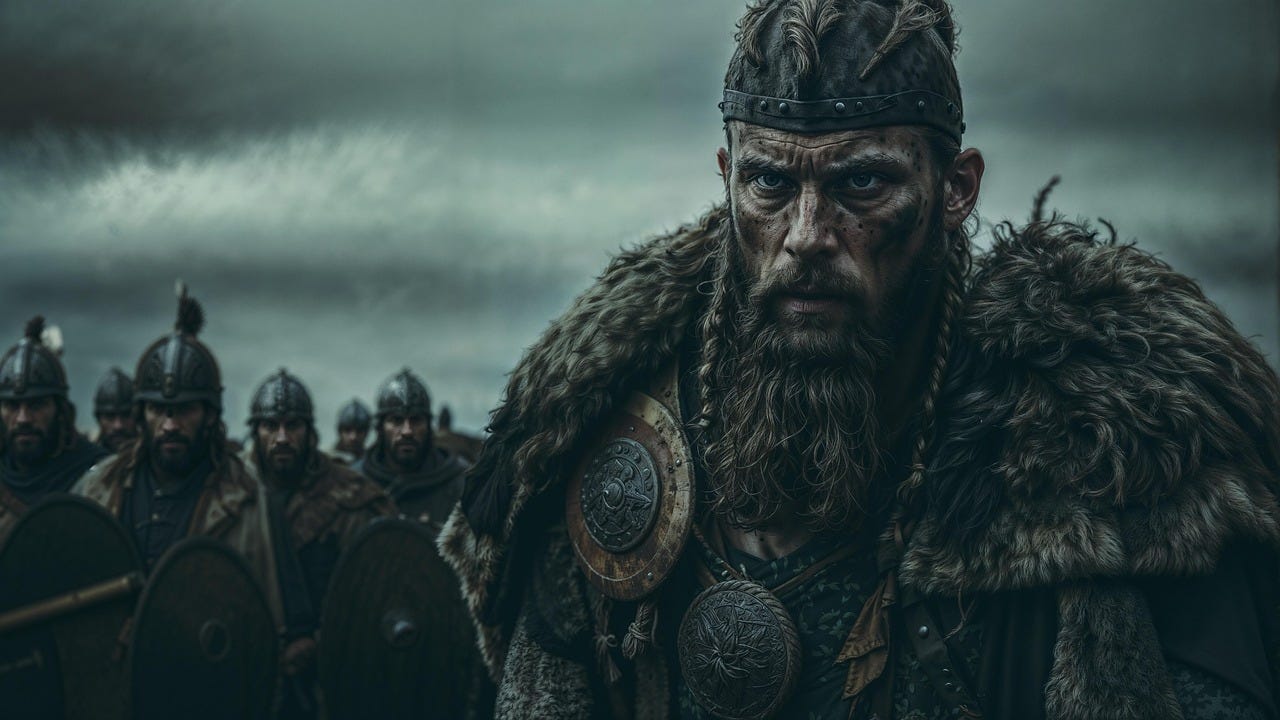
A. Wyrd — Fate as a Tapestry
Let’s start with one of the most important concepts in the Germanic and Norse worldview: Wyrd.
Wyrd is an Old English term meaning fate or destiny. It’s closely related to the Norse concept of Urðr, one of the three Norns, or fate goddesses, who weave the destiny of gods and men alike at the roots of Yggdrasil, the World Tree. Wyrd is not simply a preordained script but the unfolding of events that arise from past actions and decisions. You might think of it as the tapestry of consequence — shaped by what has been done, but ever-moving.
An example comes from the Old English poem "The Wanderer," where the speaker says, "Wyrd bið ful aræd," meaning "Fate is wholly inexorable." In the epic Beowulf, the hero declares, "Gæð a wyrd swa hio scel!" — "Fate goes ever as it must." This reflects the belief that a warrior must face whatever comes, not trying to escape fate, but striving to meet it honorably.
Think of wyrd as a weaving of cause and consequence — a tapestry being woven by past actions, both your own and those of others, and the inescapable forces of the cosmos.
But here’s the key difference: wyrd isn’t fixed, fatalistic determinism. It’s a web — and through our actions, we tug at the threads. Our past shapes us, yes, but conscious, bold action can redirect those patterns.
Wyrd is the pattern you inherit and the pattern you shape through choice. It’s the momentum of your past combined with the force of your will in the present. It is one part fixed due to past events, actions, and circumstances, but part malleable based on your choices you make as you apply your force of will by way of your actions, knowledge, skills, and abilities. Fate is something that a superior man can rise above, in part, by acting consciously and heroically, rather than passively submitting.
For the warrior, what matters most is the manner in which you face your fate, rather than the outcome of the way things play out.
Let’s dig a little deeper into these examples:
1. "Wyrd bið ful aræd" — from The Wanderer
Phrase:
“Wyrd bið ful aræd.”
“Fate is wholly inexorable.”
Context:
The Wanderer is an Old English elegy — a poem spoken by a warrior who has lost his lord, his companions, and his place in society. He is now a solitary exile, reflecting on the impermanence of life, the collapse of once-great halls, and the inevitability of death.
When the speaker says “Wyrd bið ful aræd”, he’s acknowledging that fate is unchangeable — no one can alter the course of events once it is set. The poem is deeply melancholic, but it’s not nihilistic. Despite his loss and loneliness, the warrior continues to endure.
How does the warrior handle this?
He reflects with wisdom: Even though everything passes away, the warrior accepts it. He doesn’t rail against wyrd.
He endures: There’s dignity in bearing misfortune without complaint.
He clings to memory and wisdom: He recalls the virtues of bravery, loyalty, and steadfastness — the values that gave life meaning before wyrd stripped everything else away.
So here, facing wyrd isn’t about dying in battle — it’s about enduring exile, loss, and grief without breaking.
2. "Gæð a wyrd swa hio scel!" — from Beowulf
Phrase:
“Gæð a wyrd swa hio scel.”
“Fate goes ever as it must.”
Context:
This line is spoken by Beowulf himself, before his climactic battle with Grendel’s mother — after he’s already defeated Grendel. It comes at a moment where Beowulf knows he is risking his life again by descending into a dark, unknown mere (lake) to fight a deadly, supernatural foe.
How does Beowulf handle this?
He acknowledges fate’s power: Beowulf doesn’t presume victory is guaranteed by his skill or courage alone. Fate will decide the outcome.
He chooses boldness anyway: Knowing he might die, he willingly faces the danger head-on. He arms himself, makes his preparations, and acts decisively.
He seeks honor in the fight itself: Victory or death — either outcome is acceptable, as long as he meets his wyrd with courage and integrity.
Key Difference:
Where The Wanderer deals with enduring wyrd’s hardships after defeat, Beowulf demonstrates how a warrior actively faces wyrd in battle and danger. Beowulf isn’t passive — he moves toward wyrd, knowing its power, but striving to act nobly within it.
Why These Matter Together
Both quotes come from very different situations:
The Wanderer faces the aftermath of wyrd — the loss of his kin, lord, and worldly joys. He endures.
Beowulf faces wyrd in the moment of decision — at the brink of battle. He acts.
Together, they reveal the two faces of the heroic response to wyrd in Germanic thought:
Accepting loss and hardship with wisdom and stoicism.
Facing danger and death boldly, seeking honor regardless of outcome.
Neither rails against wyrd. Neither pretends to control it.
Both hold to courage, loyalty, and action as the proper response to a world where fate is relentless and unpredictable.
B. WHAT IS HONOR AND GLORY?

Once we understand that certain aspects of fate are set — that wyrd moves as it will, and death is inevitable — we arrive at an ancient truth that shaped the lives of Germanic, Greek, and other Indo-European peoples:
What matters most is not how long you live, but how well you live.
But what does “living well” mean in these traditions?
The answer lies in honor, glory, and reputation.
⚔️ Honor in the Germanic World
In the pre-Christian Germanic world — the world of the Norse, Anglo-Saxons, and continental Germanic tribes — honor was the public measure of a person’s worth. It wasn’t something you claimed for yourself. It was earned through deeds and confirmed by your community.
To be honorable meant:
Courage in battle and in hardship
Loyalty to your lord, your kin, and your companions
Keeping your oaths, no matter the cost
Generosity to kith and kin
Protecting your family and tribe
🔸 Your reputation was your legacy — a kind of immortality in a world where the afterlife was uncertain.
Example: Beowulf
While Beowulf's fight with Grendel does offer personal benefits like glory and renown, it's not solely driven by them. Beowulf is motivated by a combination of personal ambition, duty, and a desire to repay debts of honor to King Hrothgar.
It’s the right thing to do.
It upholds his reputation.
It honors his people.
It fulfills his duty as a warrior (repayment of an honor debt).
Beowulf’s honor isn’t proven by what he says, but by what he does — and by how others remember those deeds.
His name lives on because his actions made it worthy.
🏺 Greek Kleos: Glory and Eternal Fame
The ancient Greeks had a word for this enduring reputation: kleos.
Kleos means glory, fame, renown — what people say about you after you die.
For the Greeks, especially in the heroic age of Homer’s epics, kleos was one of the highest ideals a man could pursue.
Example: Achilles
In Homer’s Iliad, Achilles is offered a choice:
A long, comfortable life without fame
A short, glorious life ending in battle, but with eternal renown
Achilles chooses glory.
Why?
Because while life is temporary, kleos is eternal.
If men speak your name after you’re gone — if your deeds live in story and song — you never truly die.
His choice speaks to a truth known across Indo-European warrior cultures:
What outlasts the grave is reputation
Your name and honor are carried forward by others, and your deeds shape your memory
Why It Matters in a Modern World

In these ancient traditions, it was not enough simply to survive. To live well meant living with courage, integrity, and loyalty — in a way that left a worthy name behind.
Today, modern society is often:
Comfort-driven
Egalitarian to the point of flattening distinction
Suspicious of hierarchy, pride, and heroic ambition
Focused on safety, consumption, and individual gratification
In such a world, ancient values like honor, duty, and reputation can seem outdated, naïve, or even dangerous. But the reality is — these values still matter.
They give life weight, meaning, and direction in ways that comfort and ease cannot.
Even though we don’t live in mead-halls or fight sea monsters, every person still faces:
Moments where courage is required.
Tests of loyalty.
Times when keeping your word is hard.
Opportunities to protect others at cost to yourself.
Choices between the easy path and the worthy one.
And it’s in those moments we decide what kind of person we are — and what kind of name we leave behind. It’s not enough to simply live. You must live in such a way that you earn honor and leave behind a name worthy of remembrance.
And if I haven’t hammered this point home enough, let me add that the heroic life isn’t about invulnerability, perfection, or endless success.
It’s about:
Facing fate boldly
Upholding your honor, no matter the cost
Leaving behind a legacy of courage, integrity, and loyalty
That’s as rare now as it was then — but no less meaningful.
Living the Heroic Life Today
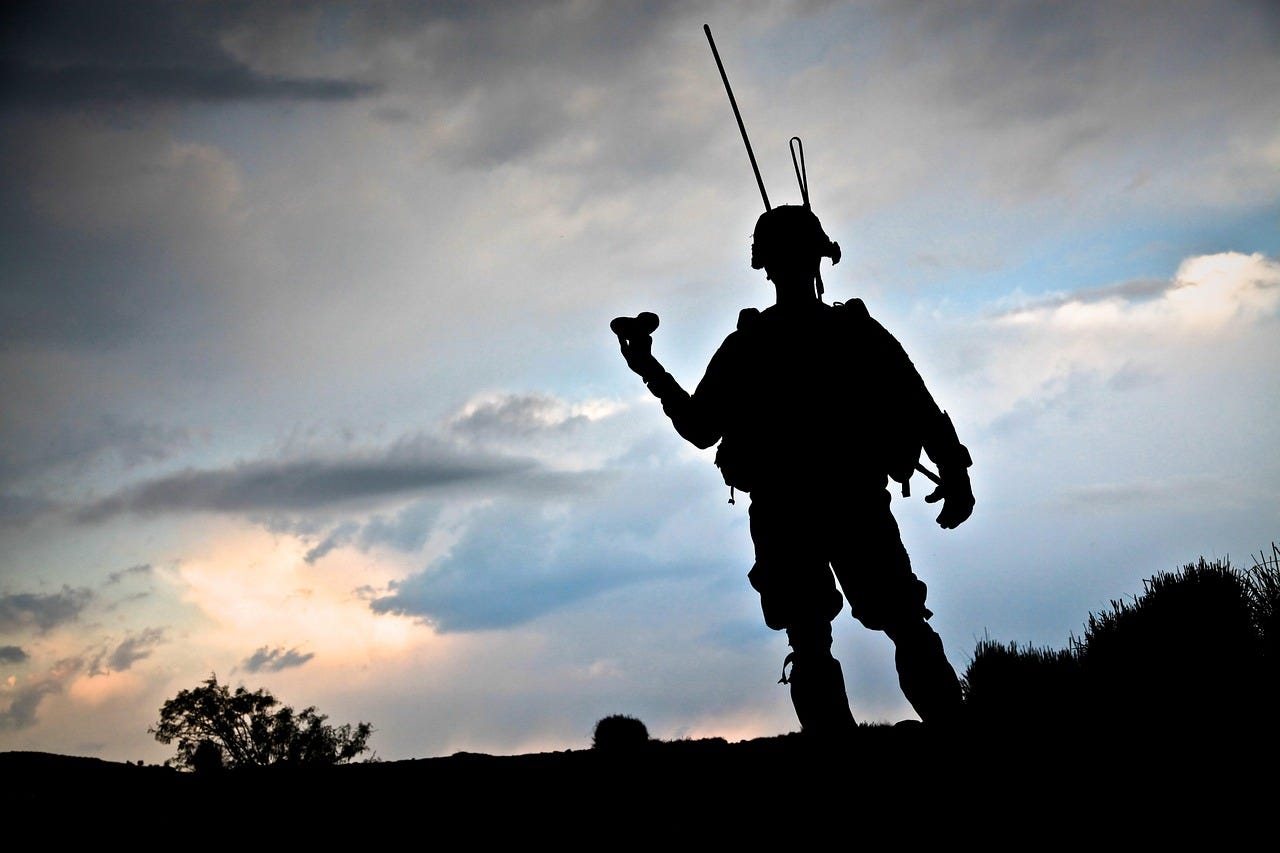
Now, how do we bring these ancient ideals into our modern lives?
Embrace your wyrd — Understand that death is certain, but meaning is made in how you live. Face life’s challenges head-on, knowing that your deeds weave your own fate.
Set trials for yourself — Choose challenges that test your body, mind, and character. A difficult workout regime, an uncomfortable truth, a hard conversation. Live as one who acts.
Strengthen your body and mind — Train physically. Read old these old texts we’ve been discussing and learn skills. Sacrifice to gain strength and wisdom.
Speak truly and act loyally — Keep your promises. Speak right words. Build your name by your actions.
Sacrifice for something greater — For family, tribe, truth, or legacy. What would you bleed for? What would you fight for when no one else will?
Seek a name that outlives you — As the Norse proverb says, Cattle die, kinsmen die, but a man’s name lives on. Live in such a way that your name means something after you’re gone.
Wrapping it up…
If you take anything from today’s episode, it’s this: The Heroic Life isn’t a relic of the past. It’s a way to live in the modern world — with strength, courage, and purpose. These ancient myths were never just stories — they were training grounds for the soul.
Thank you for joining me on this journey. If this episode resonated with you, share it with someone else walking the warrior path. Until next time, stay sharp and keep it Pearl Snapped!

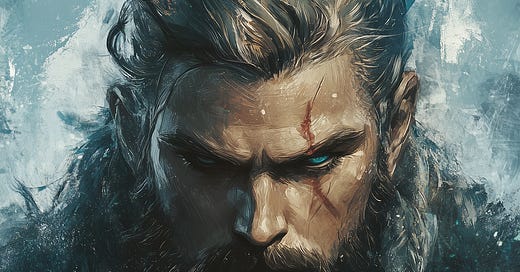
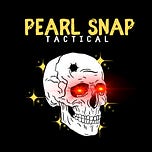

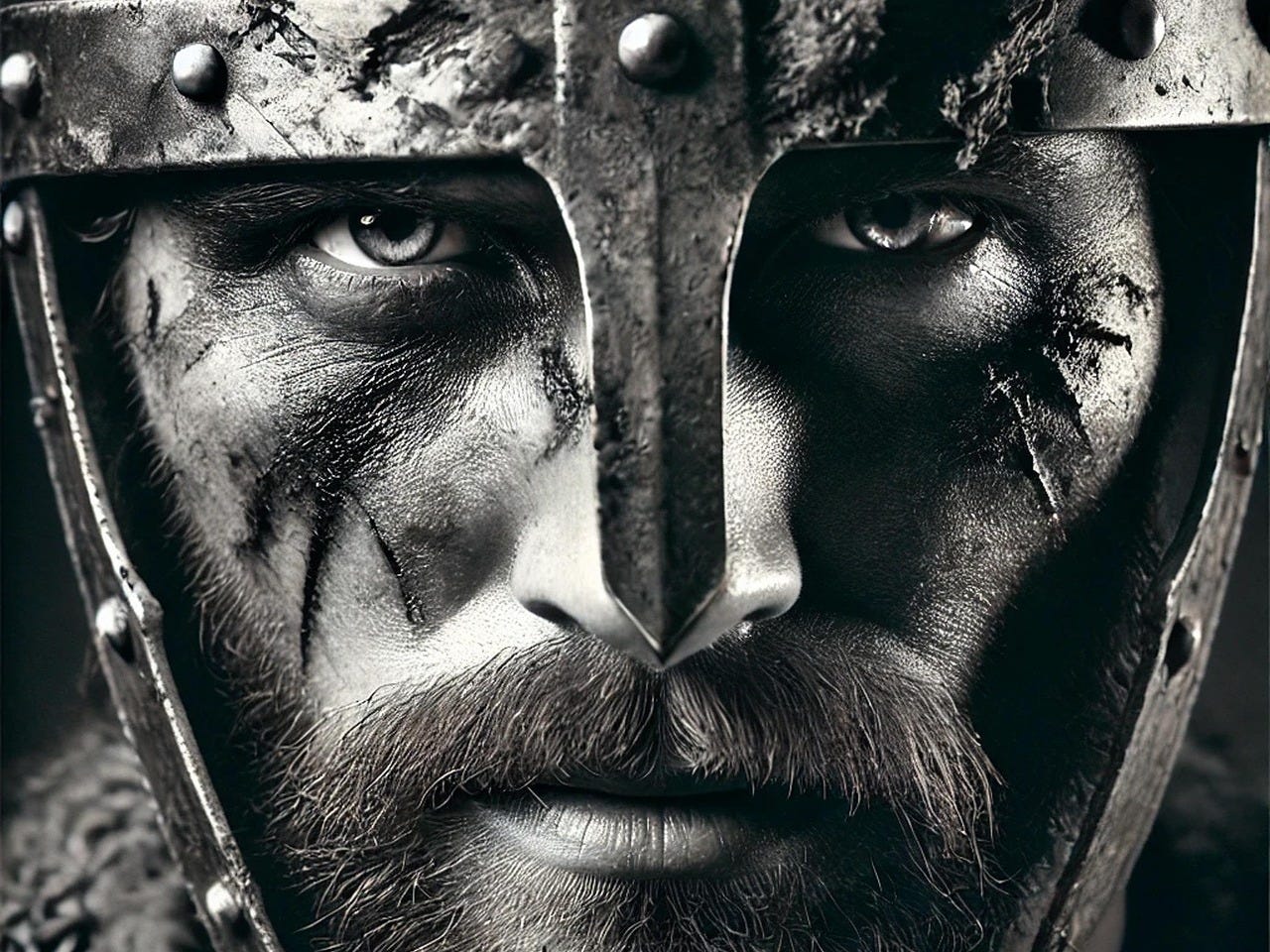








Share this post